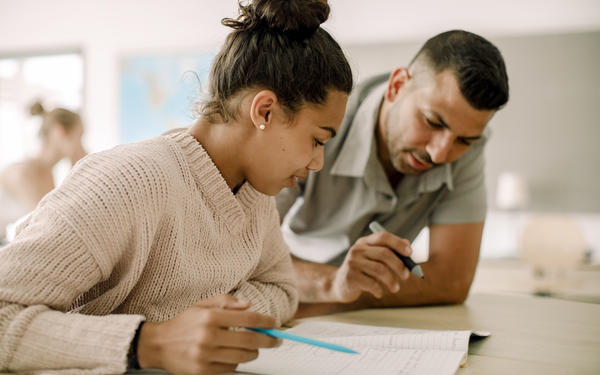News and Events
Students say reviving one-to-one conversations with teachers important response to lockdown learning
New research published by Cambridge University Press & Assessment found that school students believe spending more time with their friends, being able to speak to teachers on a one-to-one basis and having the opportunity to explore new ideas and interests are essential for their wellbeing post lockdown.

Researchers asked more than 600 secondary school pupils, aged 14 to 18, about their learning experiences following the second national lockdown in England, which took place between early January and March 2021. Students were asked about nine types of school and home activities involving varying levels of social interaction, such as whole class activities, working in small groups, one-to-one conversations with their teacher, and interacting with friends. Social interactions are known to be an important component of overall wellbeing for school students.
The report’s authors found that both the extent and nature of students’ social interactions changed markedly during lockdown. Around two thirds of students reported spending much more time working independently, suggesting that there were large parts of the school day during which remote interactive teaching did not take place. A similar proportion also reported spending more time alone, without any friends or family.
Students were also asked how much of each activity they needed over coming months, compared with how much of them they had during lockdown. There was an overall desire for more time on all activities, except independent working (and, perhaps unsurprisingly, spending time with their family). Overall, more than two thirds of students said they needed to spend more time with friends, more than any other activity. Older students were even more likely to say this, with over three-quarters of those in years 12 and 13 citing this need. They were also more likely to say they needed more time to ‘explore new ideas and areas of interest’ than younger pupils. The figures were similar whether students spent most of their lockdown learning in school or at home, suggesting general activities could benefit all students.

The report’s authors conclude that:
“The findings highlight the multiple functions of time at school, providing social time alongside learning, but also opportunities for young people to have space and time to themselves. Students appear to predominantly want a return to ‘normality’ following the challenges of lockdown, rather than missing specific aspects of their school experience.”
The findings are also consistent with previous comments made by Tim Oates CBE, Director of Assessment Research and Development at Cambridge University Press & Assessment, on how to solve the ‘hyper problem’ of interrupted learning. He says:
“We know that the impact of interruption was highly individual, and we need to start by understanding the way in which interruption has played out for each person. This does not lead to a highly individualised curriculum – that’s an error – but it informs the action which teachers and pupils jointly should take. The workload for recovery learning should not be seen as solely the workload of schools – it is a shared workload of pupils and teachers.”
The research was published in the latest issue Cambridge University Press & Assessment’s bi-annual online publication Research Matters. Join the mailing list for Research Matters updates.
